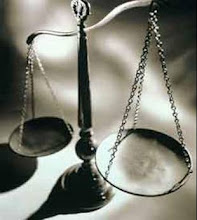Position of Data Privacy in Malaysia
Introduction
Most of the country around the world such as US, Europe countries and etc has their own law that governs their data privacy. The third world countries or in other words developing countries such as Malaysia eventually realize the importance to protect personal data. The advancement of technology and also the increasing number of cases on cyber crimes in Malaysia shows that there is a need to enact law on data privacy. Expert in Cyber Law and also former dean in University Malaya, Prof Abu Bakar Munir in his comment stated that, ‘the recommendation to enact law relating to data privacy in Malaysia had been voice out since 10 years ago and comparing with other countries in Europe or even Asian countries, Malaysia had been left far away backward regarding this issue’- Bernama. Despite of that, bill regarding protection of data privacy will be table in the parliament in October by the Minister of Communication and Culture, Datuk Seri Dr Rais Yatim.
Generally protect the data of the government whether it is state or federal government. The government servant must not reveal information or data to anyone unauthorized by the government to have the information or data. The specific scope of this Act which only covers and apply to government servant and protect the official information and data only. How about our personal data? It seems that the Act is not relevant to be relied if there is an exposure of our personal information to irresponsibility bodies, organizations or individuals.
Purposely, the bill being introduced to protect the personal data in Malaysia, but if there are exceptions in the Act for certain organizations or bodies or even government to uses the data for some reasons the act will be ineffective measurement to it purpose. However, Datuk Seri Dr Rais Yatim stated that the Act only will be applied in the private sector and not the government. In contrast, Prof Abu Bakar Munir suggested that the Act should be imposed strictly without any exceptions also intervention and interest of others (political or personal interest). Because of the disparity of opinion, critical discussion should be held and majority opinions of expertise should be took into consideration to make the Act more effective and relevant to be implemented. The question that needs to be answered is to what extent the Act is sufficient to preserve and protect personal data?
For your information, despite of the bill on protection of data privacy, the other bill that will be table is the Bill of Freedom of Information 2008. The purpose of the Act has become constitutional issue and highly debated by politicians and academicians in Malaysia. The bill has been introduced by the opposition party and the Chief Minister of Selangor stated that the bill will be table in the State Assemblies (as enactment) in November. Because of that , the opposition party suggested that the bill will be table in the Parliament (as an Act). Moreover, the establishment of the bill is to uphold the freedom of speech under the Article 10 of the Federal Constitution. The bill provided that anyone (private or public sector) can file an application to obtain personal information of others with sufficient and reasonable reason. If the responsible body or organization refused, there are subjected to civil and criminal proceeding under Schedule 8 of the bill. Schedule 4 of the bill provided the exceptions for those who refuse to give the information needed. The Bill of Freedom of Information 2008 which gives freedom to obtain information of a person maybe conflicting with the Bill of Protection of Data Privacy which does not allow the exposure of anyone information. Thus, Parliament should noted the problems and further discuss on this issue for the benefit of the public at large.
This bill is known as DNA data bank. This bill had been critically comment by a lot of people. However, there are need to implement this Act;
1. Improving the police’s solving rate further.
2. To mitigate the CSI mistake which sometimes help criminals to escape.
In contrast;
1. As an evidence in court, so, the impact on the judicial process. Police have a batter title to decide a case.
2. Infringe personal right to privacy
3. The head of DNA data bank has sole discretion to destroy the sample which may leads to misuse, abuse and injustice of the data as conclusive evidence in court.
Conclusion
The implementation of the Act and table of the Bills should be specified and should not related with any political interest or personal interest. The Act or Bills should be enacted for the purpose of the public solely. Thus, whether the Act or Bills are relevant or not it depends on the current situations and the interest of the legislative body to legislate the law.




